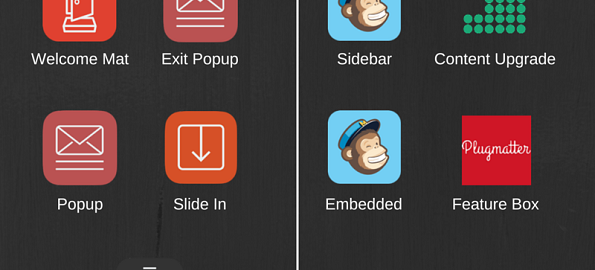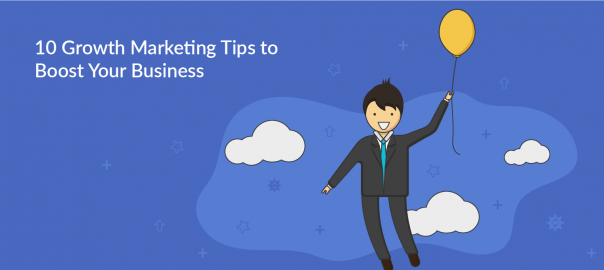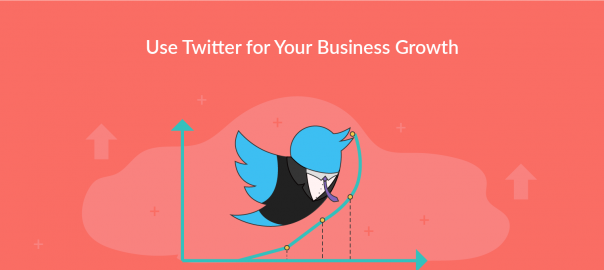There is no doubt that one of the most challenging aspects of business for any startup or entrepreneur is growth. You can have the most amazing product or service in the world, but if you can’t drive exposure to it, you’ll never grow your company.
For many, much of the marketing of their business is directed at their website. This is why automating your website to be a constant source of leads and/or sales is a focus that every small business should invest in.
Let’s look at three ways you can turn your website into a growth engine along with some great examples that you can emulate.
What is Website Marketing Automation?
Before setting up your website to automate certain tasks, it pays to know what website marketing automation is. Marketing automation refers to setting up software and funnels that allow companies to capture leads, nurture them, and turn prospects into paying customers.
Automating your website to accomplish these goals will involve some investment in software, but it is an investment that can be easily justified by the returns you’ll gain once it is all setup.
Now that we understand what marketing automation is, let’s look at three examples.
-
Implement lead capture popups that provide value in exchange for an email address
Capturing the email of your website visitors is a marketing asset that can’t be overlooked. In fact, using an email for marketing purposes yields an ROI of 4,300 percent for businesses in the U.S.
However, website visitors won’t generally provide their email address without receiving something of value in return. Think of the email subscriptions you have signed up for; it’s likely that you did so because the brands offered some kind of coupon, savings, amazing offer or some other incentive that you deemed worthy of in exchange for your email.
On my website, Fitness Mentors, I use an automated popup (using software from Thrive Themes) that incentivizes visitors to get a free guide in exchange for their email (see image below). A secondary part of this automation is retaining the email within my email client (I use Aweber but other services like MailChimp, Constant Contact or Emma also work well), and the third part is automatically sending the visitor to the page where the guide we advertised in the popup can be found.
At this point my website has done a few things effectively:
- Captured a hugely powerful marketing tool – an email
- Automatically added my new contact to my email marketing software, opening up the opportunity for future communication
- Provided my visitor something of value, leading to further trust
Of course, the above alone does not always generate a sale. This is why what we do with that email is very important and brings us to our next point.
More resources on growing your email list
5 Ways to Grow Your Email List Today
30 Ways to Increase Your Email List
-
Automate email nurture campaigns
Let’s assume that the email lead capture tools you setup begin to work well and you start to collect five or 10 new emails a day. Nice work!
The next marketing automation step we want to take is setting up what is called an email nurture campaign. The word nurture means to cultivate, foster or encourage, and that is exactly what the goal of your email nurture campaign should be with the goal of building brand trust and generating product/service sales.
All email software has the ability to setup automated email campaigns and this is what you’ll want to do to build trust with your new lead as well as introduce them to more products or services.
In an earlier blog on Creately titled 6 Ways to Market Your Startup with Email, some tips for effectively generating a successful email marketing campaign include:
- Setting up emails on a consistent schedule
- Keeping a timely message
- Including quality content
- Giving subscribers exclusive content
Below is a screenshot of the first five emails in our email nurture campaign along with the posting schedule.
There is, of course, a small learning curve when getting used to the email software you choose as well as learning what types of messages work best. For Fitness Mentors, one of our most popular emails was one that led visitors to our free practice tests page, one of the most highly sought after resources we offer that resonates with our clients.
Leading visitors to resources segues nicely to our next talking point, automating emails to blogs.
-
Automate blog emails to above lists
Now you know that you can grow your email list by offering visitors an incentive and lead them to a sale by setting up an email nurture campaign, you’ll want to keep hitting these subscribers with great content.
For many small businesses, great content comes in the form of a blog. When utilizing your email list you generally don’t want to always be promoting products or services, you’ll want the overwhelming mix of emails to be of value.
This is why we at Fitness Mentors like to send our email subscribers a blog post each time we publish one. The focus of our blog posts is to help our clients grow their businesses so we’d like to think we are providing some nice value with this content.
The other thing is we see that these blog subscribers are some of our most loyal clients and our software (Google Analytics) tells us that they tend to spend the most money on our products. Constantly providing value to email subscribers keeps your brand top-of-mind and helps you close more deals in the long run.
For whatever email marketing software you use, be sure to learn how to automate blogs so that they are sent to your email list to help keep these visitors engaged and to generate a sizeable chunk of your website traffic. Each software has different setup requirements, but there’s nothing a quick Google search can’t find.
Setup Your Website for Marketing Automation Today!
Setting up automated marketing within your website takes some investment of time and money. After that, you can focus on improving your product or spend more time on other marketing efforts such as driving more traffic to your website.
To recap, you’ll first want to have some sort of content that is of value to your website visitors and that you can use as an incentive to collect their email. Once you have this content, you’ll want to setup up a popup that displays your offer and collects emails and then automatically sends your visitor the content you promised them.
Next, you’ll want to continue to market to these email leads via an email nurture campaign. Finally, automate your blog so that your email subscribers will continue to get valuable content and be encouraged to return to your site on a frequent basis.
Be sure to set a clear path for your automated marketing efforts with a clearly diagrammed process so you know the exact paths you’ll want your campaigns to take.
Author Bio
Eddie Lester is a personal trainer, serial entrepreneur and fitness educator in Manhattan Beach, California and is the founder of Fitness Mentors, a personal training education website for all stages of your career. He can be found at the beach playing volleyball or surfing, or at the gym training for performance and drumming up new marketing ideas for his sites.







What do you think that how often should we send emails to our subscriber about a product?